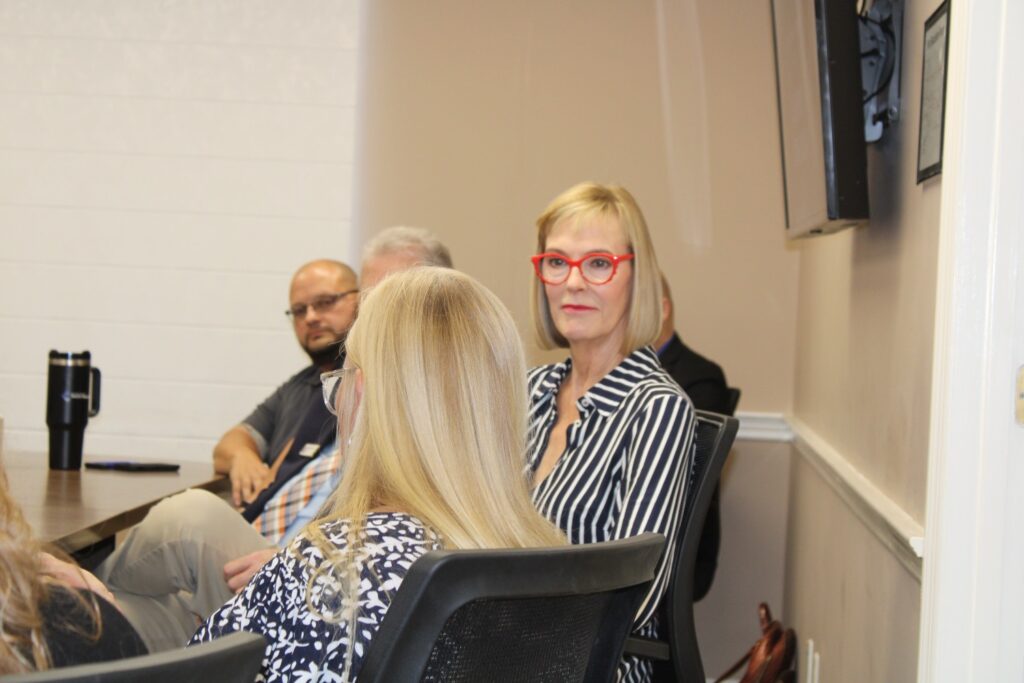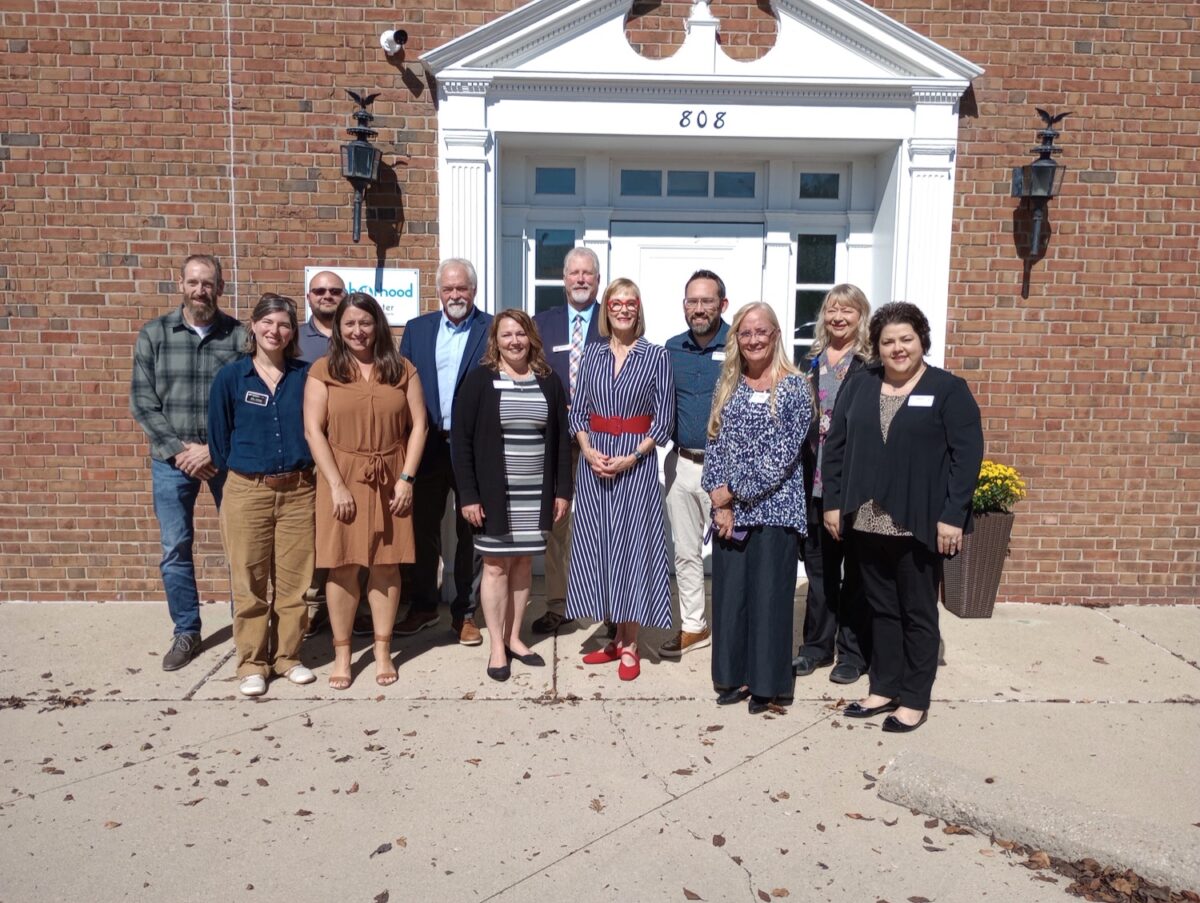Indiana Lt. Gov. Suzanne Crouch’s attention to mental health developed through multiple family situations.
“My interest is very personal,” Crouch said Oct. 3 while participating in a discussion with Wayne County mental health professionals and leaders at the Neighborhood Health Center’s administration building.
Crouch co-chairs the Indiana Mental Health Roundtable that addresses mental illness and addiction in the state. She also has testified in the legislature to support funding mental health and addiction services. Crouch plans to continue her engagement with the issue after leaving office Jan. 13.
Lisa Felsman, the system of care coordinator for Centerstone, appreciated hearing Crouch’s personal story and the passion Crouch exhibits from her lived experience.
“She has a passion for making Indiana a state that cares about mental health,” Felsman said.
Crouch listened to the local problems, successes and ideas during the roundtable. She was especially impressed with a volunteer-led initiative that helps residents expunge felony convictions from their records.
Crouch was told 70 participants from eight counties attended, trying to increase their ability to find housing and employment. She called the effort transformative for the participants.
“I’m so impressed with the work you’re doing here,” Crouch said.

The lieutenant governor also appreciated the suggestion of a bed registry that enables service providers to quickly locate open treatment beds. Felsman said it’s vital to take advantage of the window when someone is ready for treatment. Currently, it might take dozens of phone calls to locate a treatment option. Crouch thought that was a “wonderful idea” and could be addressed through legislation.
“I think we need to pursue that,” she said.
Elisa Worland from Wayne County’s Purdue Extension office had noted that she experienced data sharing in California that enabled service providers to see any services an individual was receiving. Without that in Indiana, multiple agencies serve the same individual without knowing about the others. Some ideas were presented for ways data could be shared.
One obstacle discussed was whether service providers would update a database. Jeff Plasterer, president of Wayne County’s commissioners, suggested requiring updates to receive state funding.
The discussion also covered youth mental health and loneliness issues as well as helping residents in jail continuing medication therapy while incarcerated and receiving support after release.
Crouch said the state has invested $100 million in a 988 crisis hotline and in mobile response teams. The 24-hour hotline connects someone with a trained crisis specialist.
Discussion participants said there’s a lack of awareness about the hotline among Wayne County residents. Crouch agreed that 988 needs to be publicized better.
She pointed at three areas of focus for the state: mental health parity; attraction of workers to mental health jobs, including possible loan forgiveness; and taking care of those service providers’ mental health.
State Rep. Brad Barrett said the obvious roadblock to more mental health initiatives is state funding as legislators attempt to align priorities with needs. Crouch hopes the general assembly prioritizes mental health during the 2025 session’s budgeting process.
A version of this article appeared in the October 9 2024 print edition of the Western Wayne News.

